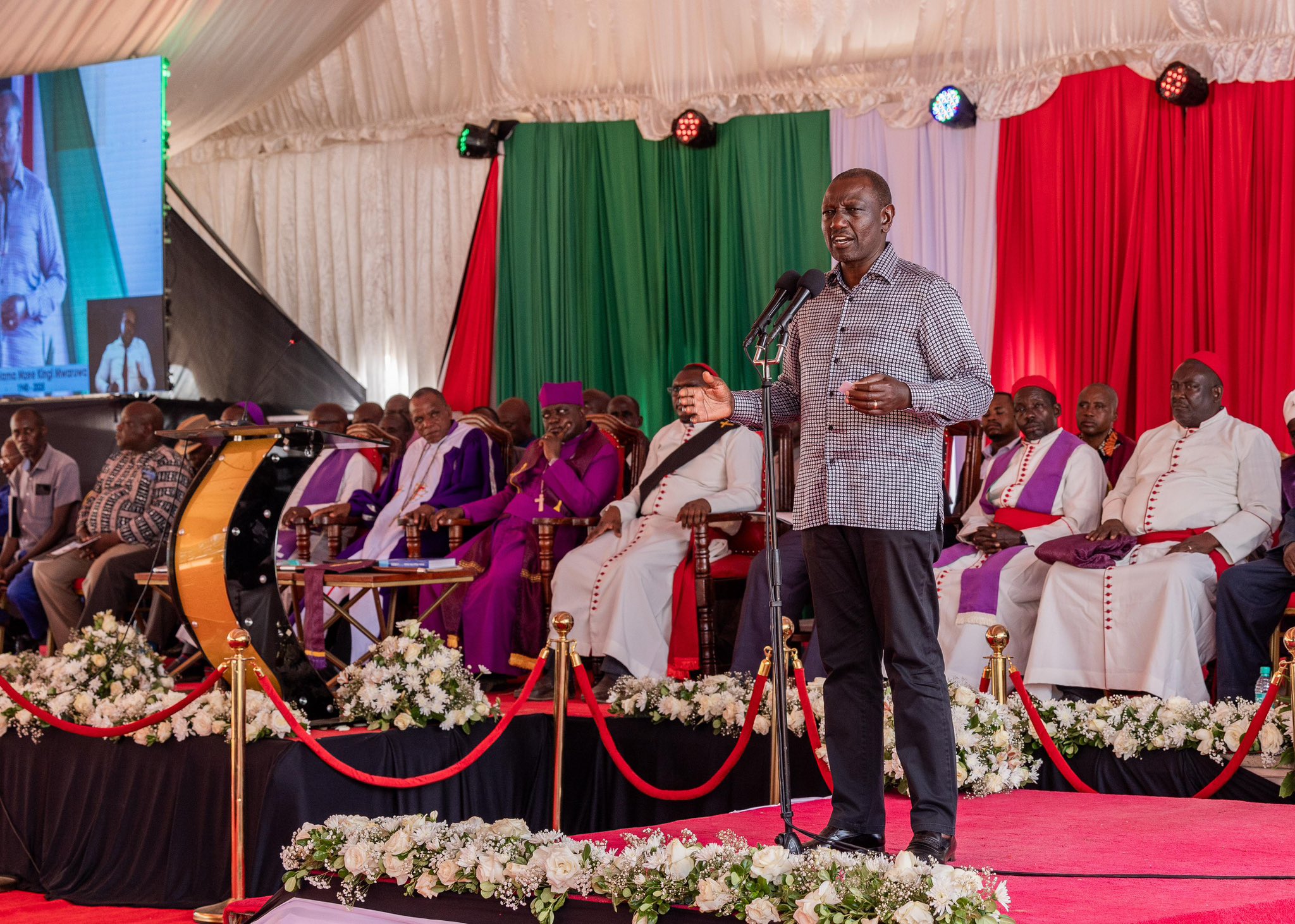
 President William Ruto speaks during the burial of Senate Speaker Amason Kingi's father on February 22, 2025. PHOTO/PCS.
President William Ruto speaks during the burial of Senate Speaker Amason Kingi's father on February 22, 2025. PHOTO/PCS.President William Ruto has embarked on a weeklong tour of the coastal counties, marking his first visit to the region in seven months.
The tour, which began on Friday, February 21, will see the President traverse six coastal counties to launch new projects and commission completed ones.
Speaking on Friday, Ruto revealed details of his visit, highlighting a range of development initiatives aimed at benefiting the region.
"I am here until Saturday next week for several development activities," he said during the burial ceremony of Senate Speaker Amason Kingi’s father in Kilifi.
During his seven-day trip, the President is expected to visit Mombasa, Kilifi, Kwale, Taita Taveta, and Tana River counties.
Ruto last toured the coast in July, 2024 when he launched several development projects. His latest visit is his first aggressive development tour since the formation of the broad-based government.
One key issue on his agenda is addressing the squatter problem in the region. His administration has committed to purchasing land from absentee landlords to resettle affected families.
On Friday, Ruto stated that his tour would include commissioning the construction of the Kwa Jomvu–Mariakani road, launching affordable housing projects, and addressing land issues.
Regarding the settlement program, Ruto said he has tasked Cabinet Secretaries Salim Mvurya and Hassan Joho, along with Senate Speaker Amason Kingi, with identifying land owned by absentee landlords for government acquisition.
"I have already given the assignment to identify land to be acquired from absentee landlords. By December, we will be issuing title deeds to squatters," he said.
On the issuance of national identification cards, Ruto emphasized that the process must be uniform for all applicants across the country.
He criticized the practice of subjecting some communities to excessive scrutiny before receiving their documents and reiterated his administration’s commitment to ending discrimination and promoting equitable development nationwide.
Ruto also hinted at further recognition for marginalized communities, noting that after the Pembe people living in Kenya were formally recognized as citizens, the Watta community has now received a registration code and may soon be granted full recognition.










